SBASSE Advisory Board
It could not be unfounded to claim that the refined vision for the School of Science and Engineering and the strategy that was followed was significantly guided by the sage advice and altruistic leadership of a number of eminent academicians and corporate executives. These individuals had been approached by various members of the SSE team and they extended their generous and unfailing support to the venture.
Current AB Members
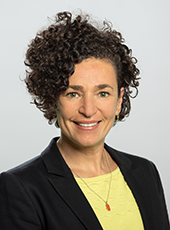
Professor Dr. Clarissa Prazeres da Costa, MD
Clarissa Prazeres da Costa, MD, is a consultant microbiologist, immunologist and infectious disease specialist and a Professor of Medical Microbiology and Immunology at Technical University of Munich (TUM), where she heads the parasitology diagnostics department and co-leads the teaching unit at the Institute for Medical Microbiology, Immunology and Hygiene.
Her research group “Infection and Immunity in Global Health” focuses on understanding the immunological basis of host-parasite interactions of zoonotic and neglected tropical diseases (NTD), type 2 immune disorders such as allergies - and fostering the translation of results into therapeutic and advanced diagnostic applications. The group also explores the impact of chronic infections on maternal and child health, especially in the context of the Developmental Origins of Health and Disease (DOHaD).
Da Costa is the co-founder of the Center for Global Health, where she spearheads interdisciplinary activities such as the development of NTD therapeutics and diagnostics, the integration of novel technologies such as machine learning into the SDG3 agenda, the investigation of the environmental impact on antimicrobial resistance (AMR) and of Women’s Health in sub-Saharan Africa. As founder of the Women in Global Health (WGH) and member of the German Network against Neglected Tropical Diseases (DNTDs), her key interests relate to health policy and advocacy for women in decision-making roles in Global and Women’s Health, where she actively drives the agenda of gender-related topics in NTD’s in Africa.
Da Costa publishes in high impact journals and her research is funded, amongst others, by the German Research Foundation (DFG) including large-scale consortia (SFB), Alexander-von-Humboldt-Stiftung and by the German Ministry of Education and Research (BMBF).
Infection and Immunity in Global Health: https://www.mikrobio.med.tum.de/en/home/research/da-costa-group
Center for Global Health: https://www.med.tum.de/en/center-global-health-0
Follow us on Twitter (@cgh_tum), LinkedIn (cgh tum), and Instagram (@cgh_tum)
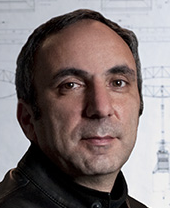
Professor Dr. Dara Entekhabi
Dara Entekhabi received B.S. (1983) and M.S. degrees (1985, 1988) in geography from Clark University, Worcester, MA and PhD degree (1990) in civil and environmental engineering from the Massachusetts Institute of Technology (MIT), Cambridge, MA.
He is currently a Professor with the Department of Civil and Environmental Engineering and the Department of Earth, Atmospheric and Planetary Sciences, MIT. He is the Science Team Lead for the National Aeronautics and Space Administration’s Soil Moisture Active and Passive (SMAP) satellite mission that was launched on January 31, 2015. His research includes Earth remote sensing, data assimilation, and coupled land-atmosphere systems modelling.
Prof. Entekhabi is also fellow of the American Meteorological Society (AMS), of the American Geophysical Union (AGU) and of the Institute for Electrical and Electronics Engineers (IEEE). He is a member of the US National Academy of Engineering (NAE).
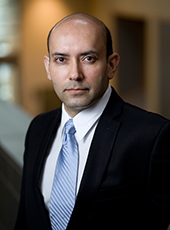
Professor Farhan Rana
Farhan Rana is the Joseph P. Ripley Distinguished Chair Professor of Electrical and Computer Engineering at Cornell University. Farhan received the B.S., M.S. (1997), and Ph.D. (2003) degrees all in Electrical Engineering from the Massachusetts Institute of Technology (MIT). Before starting the Ph.D., he worked at IBM's T. J. Watson Research Center on nanocrystal and quantum dot memory devices. A graduate of Cadet College Petaro, Farhan was awarded the Stick of Honor for best overall performance by the College and also received a gold medal from the Sindh Board of Education for securing the first position in the Board. At Cornell University, Farhan runs a research group with a focus on semiconductor photonics, condensed matter physics, quantum phenomena, and optical/terahertz spectroscopy. He received the U.S. Defense Advanced Research Projects Agency (DARPA) Young Faculty Award in 2008, the U.S. National Science Foundation (NSF) CAREER Award in 2004, the ILX Lightwave faculty award in 2005, Cornell's Michael A. Tien Excellence in Teaching Award three times - in 2006, 2010 and 2016. In 2013, he was ranked second among the top ten professors at Cornell University by the Business Insider magazine. Farhan has received several best paper awards including the "Most Downloaded Paper" title in 2008 by the IEEE Transactions on Nanotechnology and was included in the fifty most cited authors list by the journal Applied Physics Letters in 2013. He was awarded the Cornell's College of Engineering’s “Excellence in Research” Award in 2017. Farhan is currently serving as the Associate Director of the School of Electrical and Computer Engineering at Cornell University.
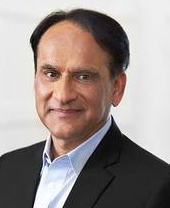
Dr. Hassan Ahmad
Hassan Ahmed is CEO and Chairman of Sonus Networks. As a chief executive officer and chairman, Dr. Ahmed is responsible for the strategic direction and management of the company. Prior to joining Sonus as president and CEO in 1998, Dr. Ahmed was executive vice president and general manager of Ascend Communications' Core Systems Division, which grew under his direction to a $1 billion business. Before Ascend's acquisition of Cascade Communications, he served as Cascade's chief technology officer. Previously, Dr. Ahmed was president and founder of WaveAccess, a pioneer in high-speed wireless network products. Additionally, he has held the positions of product engineering manager, Analog Devices, and director, VSLI Systems, Motorola Codex. He was also an associate professor at the Graduate School of Management, Boston University. Dr. Ahmed holds a BSEE and MSAE from Carleton University and a PhD in electrical engineering from Stanford University.
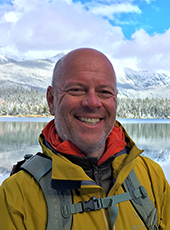
Dr. J. Michael Kendall
Professor Mike received his BSc and PhD in Geophysics from Queen’s University, Kingston Canada. Professor Mike has served on numerous committees including acting as President of British Geophysical Association (BGA) from 2009-2014. He is currently serving on the Scientific Advisory Group, UK-GEOS, Natural Environment Research Council (NERC). In 2019, he was elected as a Fellow of the Royal Society.
Professor Mike’s research interests cover pure and applied seismology, with connections to mineral physics, geodynamics, and engineering. His current research is focused on the nature of the core-mantle boundary, continental cratons, continental rifting, mid ocean ridges, and subduction zones.
He has led many seismic field experiments in a range of geological settings. Techniques developed to study wave propagation in the deep Earth have also been applied to his research in exploration seismology. His interests lie in microseismicity and passive seismic monitoring, rock fracture characterisation, and linked geophysics, geomechanics and fluid flow modelling. He has managed several large industry-funded consortia. Professor Mike will be extremely valuable for our deliberations regarding Earth Systems Science, our Skardu collaboration, and many other future initiatives.
Website: https://johnmichaelkendall.com/
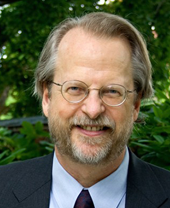
Professor Dr. James Wescoat
James Wescoat is an Aga Khan Professor in the School of Architecture and Planning at MIT. His research concentrates on water systems in South Asia and the US, from the site to river basin scales. At the site scale, he led the Smithsonian Institution's project titled, "Garden, City, and Empire: The Historical Geography of Mughal Lahore," which resulted in co-edited volumes with colleagues from the University of Engineering and Technology-Lahore. These and related books won awards from the Government of Pakistan and Allama Iqbal awards from Government of Punjab. At the larger scale, Professor Wescoat has conducted water policy research in the Indus, Colorado, Ganges, and Great Lakes basins. He authored a book on Water for Life: Water Management and Environmental Policy with geographer Gilbert F. White (Cambridge University Press). He led a USEPA-funded study of potential climate impacts in the Indus River Basin in Pakistan with the Water and Power Development Authority (WAPDA), and contributed to a World Bank and WAPDA study onThe Indus Basin of Pakistan: The Impacts of Climate Risks on Water and Agriculture(2013). Currently, he has returned to the local scale in research on rural water and sanitation planning.
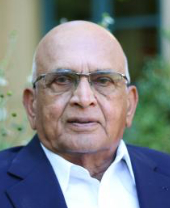
Professor Dr. Khaled Aziz
Khaled Aziz is the Otto N. Miller Professor Emeritus in the Department of Energy Science and Engineering in the Doerr School of Sustainability at Stanford University, where he was appointed as a tenured Professor of Petroleum Engineering in 1982. At Stanford, he has served both as the Associate Dean for Research (School of Earth Sciences) and as Chair of the Petroleum Engineering Department (now Energy Science and Engineering). Before coming to Stanford University, he served on the faculty of the University of Alberta for 2 years and the University of Calgary for 17 years, both in the Chemical and Petroleum Engineering Departments. At Stanford, Professor Aziz founded or co-founded successful industrial research consortia in Reservoir Simulation, Reservoir Forecasting, Advanced Wells, and Smart Fields.
Professor Aziz obtained a B.S.E in Mechanical Engineering from the University of Michigan in 1955. After working in Detroit for some time as a mechanical engineer he decided to switch to petroleum engineering. He obtained both B.Sc. (1958) and M.Sc. (1961) degrees in Petroleum Engineering from the University of Alberta. He worked in various positions in the industry, including that of the Chief Engineer for the Karachi Gas Company, before coming to Houston to study Chemical Engineering at Rice University in 1963. He received his Ph.D. from Rice in 1966.
Dr. Aziz was elected to the U.S. National Academy of Engineering in 1996. He is a Distinguished Member of the Society of Petroleum Engineers (SPE). He is the recipient of numerous professional awards, including SPE’s Honorary Member Award (highest award given by SPE), SPE Ferguson Award, SPE Reservoir Engineering Award, and SPE Lester C. Uren Award. In 2008 the University of Calgary conferred an Honorary Doctor of Laws degree on him for his contributions to industry and education. Professor Aziz co-founded Nanotechnology Consultants in Calgary in 1972 to develop and commercialize software for the design of multiphase pipeline transportation systems. This very successful company was eventually acquired by Schlumberger. In 1977 he founded the Computer Modelling Group (CMG) in Calgary for the development of software to model complex oil and gas recovery processes. While he is no longer associated with CMG, it has emerged as a major player in the field of Reservoir Simulation. His research interests include multiphase flow in pipes, multiphase flow in porous media, petroleum reservoir simulation, optimization of oil field development and operations, and modelling of gas production from shale resources. His has authored or co-authored approximately 200 technical papers, two books and one monograph. He is a frequent consultant to major oil and gas companies and government agencies throughout the world.
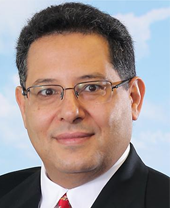
Dr. Khaled B. Letaief
Dr. Letaief is a Chair Professor and the New Bright Professor of Engineering at the Hong Kong University of Science and Technology (HKUST). Under his leadership, as Dean of Engineering from 2009 to 2015, HKUST School of Engineering transformed its educational scope, produced high calibre scholarship, and actively pursued knowledge transfer and societal engagement. During this period, HKUST Engineering enjoyed significant success in terms of international rankings, rising from 26th in 2009 to 14th in the world in 2015 according to QS World University Rankings.
As an esteemed academic, Dr. Letaief is recognized by Thomson Reuters as an ISI Highly Cited Researcher, which puts him among the preeminent individual researchers that are most highly cited and comprise less than one-half of one percent of all published authors. He has also received many distinguished awards in the field of teaching excellence.
Dr. Letaief is an internationally recognized scholar and is the recipient of many prestigious awards, including the IEEE Marconi Prize Award in Wireless Communications, IEEE Harold Sobol Award, and IEEE Joseph LoCicero Publications Exemplary Award. He has served in many leadership positions, including Founding Editor-in-Chief of the well-regarded IEEE Transactions on Wireless Communications and President of the IEEE Communications Society, the world's leading organization for communications professionals with headquarter in New York City and members in 162 countries.
Dr. Letaief is a member of the US National Academy of Engineering (NAE) and member of the Hong Kong Academy of Engineering Sciences (HKAES). He is a Fellow of IEEE and Fellow of HKIE. He holds BS with Distinction, MS, and PhD Degrees in Electrical Engineering from Purdue University, USA.
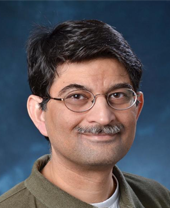
Dr. Khurram Afridi
Khurram Afridi is an Associate Professor of Electrical and Computer Engineering at Cornell University. He received the BS degree in electrical engineering from Caltech (1989), and SM (1992) and PhD (1998) degrees in electrical engineering and computer science from MIT. His research interests are in power electronics and energy systems incorporating power electronic controls. Prior to joining Cornell, he was an Assistant Professor and the Goh Faculty Fellow at the University of Colorado (CU) Boulder (2014-2018), a visiting faculty at MIT's EECS Department (2009-2014), and the Chief Operating Officer (2000-2010) and Chief Technology Officer (1997-2000) of Techlogix. From 2004 to 2008 he led the development of LUMS School of Science and Engineering (SSE) as Project Director. He has also worked for JPL, Lutron, Philips, and Schlumberger.
He is an associate editor of the IEEE Transactions on Transportation Electrification and the IEEE Journal of Emerging and Selected Topics in Power Electronics and was the Technical Program Committee (TPC) chair for the IEEE Wireless Power Transfer Conference (WPTC) 2015. He received the Carnation Merit Award from Caltech (1988), the BMW Scientific Award from BMW AG (1999), the Werner-von-Siemens Chair for Power Electronics from LUMS SSE (2008), the Dean’s Professional Progress Award from CU Boulder (2015), the ECEE Department Outstanding Overall Performance Award from CU Boulder (2016), and the National Science Foundation CAREER Award from NSF (2016). He is co-author of five IEEE prize papers.
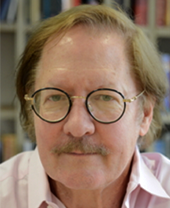
Professor Dr. Michael Pecht
Prof Michael Pecht is a world-renowned expert in strategic planning, design, test, and risk assessment of information systems. Prof Pecht has a BS in Physics, an MS in Electrical Engineering and an MS and PhD in Engineering Mechanics from the University of Wisconsin at Madison. He is a Professional Engineer, an IEEE Fellow, an ASME Fellow, an SAE Fellow and an IMAPS Fellow. He is the editor-in-chief of IEEE Access and served as chief editor of the IEEE Transactions on Reliability for nine years, and chief editor for Microelectronics Reliability for sixteen years.
He has also served on three NAS studies, two US Congressional investigations in automotive safety, and as an expert to the FDA. He is the founder and Director of CALCE (Center for Advanced Life Cycle Engineering) at the University of Maryland, which is funded by over 150 of the world's leading electronics companies at more than US$6M/year. The CALCE Center received the NSF Innovation Award in 2009 and the National Defense Industries Association Award. He is currently a Chair Professor in Mechanical Engineering and a Professor in Applied Mathematics, Statistics and Scientific Computation at the University of Maryland. He has written more than twenty books on product reliability, development, use and supply chain management. He has also written a series of books of the electronics industry in China, Korea, Japan and India. He has written over 700 technical articles and has 7 patents. He consults for 22 international companies. In 2015 he was awarded the IEEE Components, Packaging, and Manufacturing Award for visionary leadership in the development of physics-of-failure-based and prognostics-based approaches to electronic packaging reliability. He was also awarded the distinguished Chinese Academy of Sciences President's International Fellowship.
In 2013, he was awarded the University of Wisconsin-Madison's College of Engineering Distinguished Achievement Award. In 2011, he received the University of Maryland’s Innovation Award for his new concepts in risk management. In 2010, he received the IEEE Exceptional Technical Achievement Award for his innovations in the area of prognostics and systems health management. In 2008, he was awarded the highest reliability honour, the IEEE Reliability Society's Lifetime Achievement Award. He has previously received the European Micro and Nano-Reliability Award for outstanding contributions to reliability research, 3M Research Award for electronics packaging, and the IMAPS William D. Ashman Memorial Achievement Award for his contributions in electronics analysis.
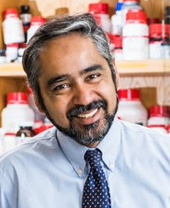
Professor Dr. Muhammad Hamid Zaman
Professor Muhammad Hamid Zaman is Howard Hughes Medical Institute Professor of Biomedical Engineering and International Health at Boston University (Tribue Story). Dr. Zaman received his PhD from the University of Chicago in Physical Chemistry in 2003 and was subsequently a post-doctoral fellow at MIT. His current work has two major thrusts. The first focus is on developing new quantitative tools to understand tumour progression and metastasis and the second area is focused on developing robust technologies for high-value healthcare problems in the developing world. Technologies developed by Prof. Zaman are in various stages of implementation in several countries. In 2013, Scientific American named technology from Zaman lab, PharmaChk, among the 10 technologies that will change the world.
He has published extensively in both areas and his work has appeared in journals such as Science, Nature Materials, Nature Reviews in Cancer, PNAS and other leading journals in the field. He has won numerous awards for his research and teaching from IEEE, FEBS, American Society for Engineering Education, USAID, The US National Academy of Sciences, The University of Texas System, Boston University and other national and international organizations. His current research is supported by NIH, NSF, USAID, UNECA, CIMIT, Saving Lives at Birth Consortium and a number of other private foundations. In addition to his research, Prof. Zaman is actively engaged in bringing quality engine universities in Kenya, Zambia, Uganda and Ethiopia. He is co-Director of the UN Africa Biomedical Initiative.
He is a weekly op-ed columnist for the Pakistan daily The Express Tribune, where his columns on education, innovation and health appear every Tuesday. He also writes for Project Syndicate (along with leading thinkers in the field such as Bill Gates, UN Secretary General, head of IMF etc) and his articles have appeared in five languages in over 30 countries.
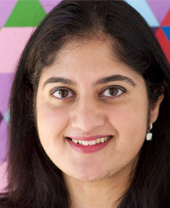
Ms. Mubarik Imam
Mubarik most recently led Facebook’s exploration for Frontline workers and Health Systems to assist with the company’s CoVID response. She was an early employee at WhatsApp and during her seven years, was involved in several major company initiatives. These included leading the product international growth and integrity teams, data science and engineering, research and strategy.
When Mubarik joined WhatsApp, she led the International Growth and Partnerships team. At the time, WhatsApp had less 200 million people using the service. Over the next six years, Mubarik and her team helped WhatsApp grow to a product of over 1.8 billion people. She was closely involved in FB's acquisition of WhatsApp and led the integration efforts across the company.
Prior to joining WhatsApp, Mubarik worked at Dropbox, the Packages Group and earlier in her career was an Acumen Fund Fellow and an Associate at Bain and Company. She is a Stanford GSB alum (MBA), and also holds degrees from the Harvard Kennedy School (MPA/ID) and MIT (BSc Electrical Engineering). Having lived and worked in over six countries, Mubarik is passionate about the intersection of technology, business, education and policy. She recently served on the Beyond CoVID taskforce at the Stanford Graduate School of Business. Mubarik currently lives in Palo Alto with her husband and two sons.
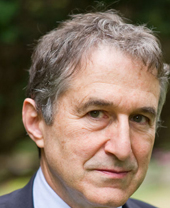
Professor Dr. Robert L. Jaffe
Prof. Robert L. Jaffe was born in Bath, Maine in 1946. After attending public schools in Stamford, Connecticut, Robert Jaffe received his AB, summa cum laude in Physics from Princeton, where he was Valedictorian of the Class of 1968. He received his MS (1971) and PhD (1972) degrees from Stanford University. At Stanford, in 1969 together with Joyce Kobayashi and Joel Primack, he founded the Stanford Workshops on Political and Social Issues.
In 1972 Prof. Jaffe came to MIT as a postdoctoral research associate in the Center for Theoretical Physics and joined the MIT faculty in 1974. Professor Jaffe has spent sabbatical years at the SLAC, Oxford, Boston University, and Harvard. In 2004 he was a resident scholar at the Rockefeller Foundation Study Center at Bellagio, Italy. Prof. Jaffe has served on and chaired numerous program advisory committees, scientific steering committees, and visiting committees at national labs and major universities. Since 2005 Professor Jaffe has been collaborating on the development of the Syed Babar Ali School of Science and Engineering, LUMS, as a member of its international advisory board.
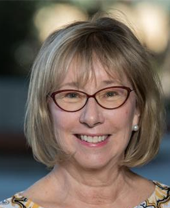
Professor Dr. Sally M. Benson
Sally M. Benson is the Director of the Global Climate and Energy Project at Stanford University. The Global Climate and Energy Project develops innovative low carbon energy supplies to meet global energy needs. She received her B.A. from Barnard College in Geology and her MS and PhD from the University of California in the Material Science and Mineral Engineering Department. Prior to joining Stanford, Benson worked at Lawrence Berkeley National Laboratory (LBNL), serving in a number of capacities, including Division Director for Earth Sciences, Associate Laboratory Director for Energy Sciences, and Deputy Director for Operations.
Also a Professor in the Department of Energy Resources Engineering, Benson works on carbon dioxide capture and sequestration in deep underground geological formations. A ground water hydrologist and reservoir engineer, Benson has conducted research to address a range of issues related to energy and the environment. For the past ten years, she has studied how to reduce greenhouse gas emissions by capturing carbon dioxide from power plants and pumping it into deep underground formations for permanent sequestration. Benson was a coordinating lead author on the 2005 IPCC Special Report on Carbon Dioxide Capture and Storage. She also serves on the Board of Directors of the National Renewal Energy Laboratory and Climate Central.
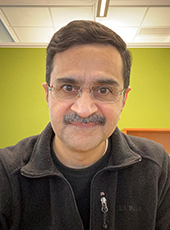
Dr. Salal Humair
Salal Humair is a Sr. Principal Scientist in the Amazon SCOT (Supply Chain Optimization Technologies) organization. He has been at Amazon since May 2014. Prior to Amazon, he was a Research Scientist at the Department of Global Health and Population, Harvard School of Public Health (2009-2014); an Associate Professor and Associate Dean at the SSE (School of Science and Engineering) at LUMS (Lahore University of Management Sciences) in Pakistan (2008-2009); and a Principal Software Engineer at Optiant Inc., a startup focused on supply chain optimization software (2001-2007).
He has a PhD in Operations Research, MS in Operations Research, MS in Civil engineering from MIT (Massachusetts Institute of Technology), and a BS in Civil Engineering from UET (University of Engineering and Technology) Lahore. His work at Optiant was in inventory optimization and at Harvard on a range of public health policy questions. At Amazon, he develops optimization models used by SCOT’s automated systems for selection optimization, inventory optimization, and capacity management.
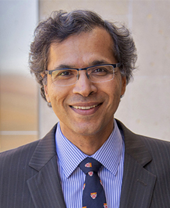
Professor Sarfraz Khurshid
Prof. Sarfraz Khurshid is a Professor in the Department of Electrical and Computer Engineering at the University of Texas at Austin, where he leads the Software Verification and Testing Research Group. He obtained PhD in Computer Science at MIT in 2004. He received BSc in Mathematics and Computer Science from Imperial College London and read Part III of the Mathematical Tripos at Trinity College Cambridge.
His research focuses on software testing, model checking, specification languages, code conformance, data structure repair, and parallel and incremental techniques for software analysis. His work on automated testing and analysis won awards at top conferences in software testing (ISSTA 2002), software engineering (ICSE 2010 and FSE 2019), and security and privacy (IEEE S&P 2014), and was recognized for its impact and awarded the ACM SIGSOFT Impact Paper Award (2012), the ASE Most Influential Paper Award (2015), and the ISSTA Retrospective Impact Paper Award (2018). He is a recipient of the NSF CAREER award (2009).
Website: http://www.ece.utexas.edu/~khurshid
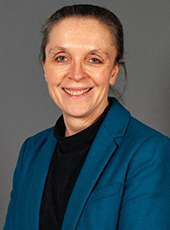
Professor Sarah Thompson MBE FInstP
Professor Sarah Thompson is the Associate Pro-Vice Chancellor Research at the University of York where she leads the University’s Transformational Initiative on Building Industry Engagement and Income. She has previously held the roles of Associate Dean for Research in the Faculty of Sciences and Head of the Department of Physics. She received both her BSc and PhD from the Department of Physics at the University of Durham, and held two independent fellowships from the Engineering and Physical Sciences Research Council at both Durham and the University of York where she is now a Professor in the School of Physics, Engineering and Technology. Her research interests are in nanomagnetism and nanoscale thermal transport. A Fellow of the Institute of Physics, she served as its Vice President Science and Innovation from 2015-2019. She has also won awards from the Institute of Physics and the British Association for science outreach. In 2012 she was awarded an MBE for services to Higher Education.
AB Emeritus Members
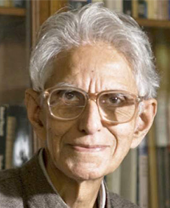
Prof. Obaid Siddique (Late)
Affiliation: National Centre for Biological Sciences, Bangalore, India
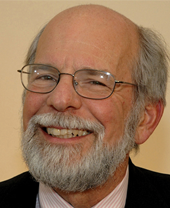
Prof. John Kassankian
Affiliation: Massachusetts Institute of Technology, Cambridge, Massachusetts, United States
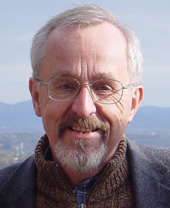
Prof. Richard Larson
Affiliation: Massachusetts Institute of Technology, Cambridge, Massachusetts, United States
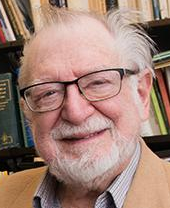
Prof. Stephen Berry (Late)
Affiliation: University of Chicago, Chicago, Illinois, United States
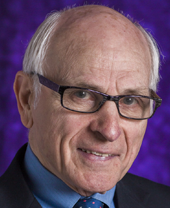
Prof. Alvin Kwiram
Affiliation: University of Washington, United States
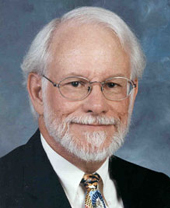
Prof. Sidney Burrus
Affiliation: Rice University, Houston, Texas, United States
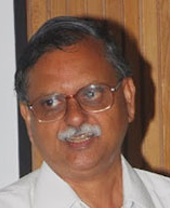
Prof. Ashok K Mittal
Affiliation: Indian Institute of Technology Kanpur, Kanpur, India
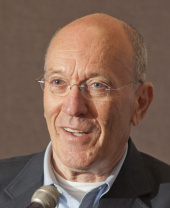
Prof. Amos Nur (Late)
Affiliation: Stanford University, United States
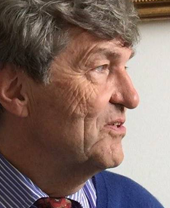
Dr. Hubertus Von Dewitz
Affiliation: Siemens, Germany
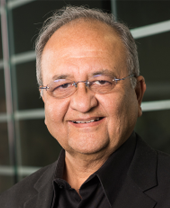
Mr. Mir Imran
Affiliation: Incube Laboratories, San Jose, CA, United States
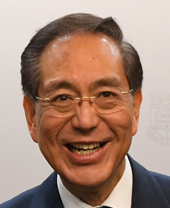
Prof. Xiang-Sun Zhang
Affiliation: Chinese Academy of Sciences, Xicheng District, Beijing, China
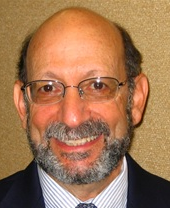
Prof. Dr. Bud Homsy (Late)
Affiliation: Affiliate Faculty at the University of Washington, United States
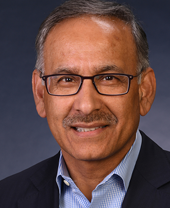
Dr. Mehmood Khan
Affiliation: Vice Chairman and Chief Scientific Officer of PepsiCo

